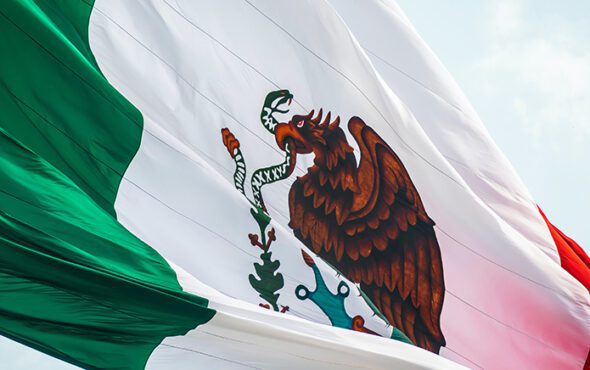
In a massive step for LGBTQ+ rights, Mexico handed out its first birth certificate with a non-binary gender marker.
The historic moment follows a lengthy legal battle between activist Fausto Martínez and the National Electoral Institute (INE).
Back in September 2021, the 26-year-old requested to put “NB” as their sex on official documents.
After the INE denied Martínez’s request, the law student partnered up with Amicus’ executive director Juan Pablo Delgado to fight the decision.
According to their website, Amicus is dedicated to the “defence and promotion” of Mexico’s LGBTQ+ community.
In January, it all came to a head when the judge presiding over the case ruled in favour of Martínez.
On 11 February, they were issued the document from the Civil Registry of Guanajuato.
Taking to Twitter, Martínez celebrated the monumental moment with an impactful statement.
“I have always said what is not named does not exist. For this reason, the transcendence of this fact, the Mexican state recognises that non-binary people exist and with that we are subject to rights and obligations,” they tweeted.
Les comparto que el pasado 11 de febrero recibí mi acta de nacimiento NB. Les cuento un poco como fue el proceso. pic.twitter.com/biz6RkgkYQ
— Fausto Martínez (@FaustoGlow) February 16, 2022
In an additional interview with the local news agency EFE, they stated: “It is a collective achievement of non-binary people in Mexico, that our existence is legally recognised with all that that implies, making us a legal entity with rights and obligations.”
Even though the ruling is only applicable to Martínez, they are hopeful that this is just the beginning for universal non-binary recognition.
“This is a result that occurred in Guanajuato, but what we want is for it to be a simpler procedure than making an amparo trial and everything that entails spending time and money, and we anticipate that it will be so, that more people will be interested in the issue,” they explained.
Alongside the recent ruling, Mexico has also taken steps to protect the transgender community within its laws.
Currently, half of the country’s 32 states have gender identity laws that make it easier for trans individuals to change their gender legally.
In 2019, Mexico’s Supreme Court also ruled that transgender people must be issued new birth certificates after undergoing gender-affirming procedures.
“As the Supreme Court has argued in other cases, everyone has the right to define their own sexual and gender identity, and it is the state’s responsibility to guarantee this decision, which is reflected in different documents, mainly in the birth certificate,” the court said.



